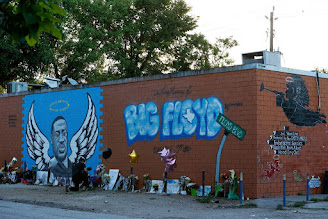Houston's first "police chief": The head of the entity that became today's Houston police department was originally called the City Marshal. The first one was Daniel Busby, twice elected to the position beginning in 1841. But in 1843, he was investigated by city officials and found to have stolen fee money ($317.52) he was charged with collecting. Busby "acceded to the request for his resignation" but was not prosecuted. As a nod to their union patrons, Roth and Kennedy observed that "this was the first official evidence of a disciplinary action in HPD history."
Also as a result of this disgraceful launch, and in light of the complexities of the fee-gathering functions inherent in law-enforcement's mid-19th century role, later City Marshals were required to post a $2,500 bond when assuming the job to indemnify the city.
Stay Icy: I'd wanted to know more about Isaac C. Lord (or possibly Irvin Capers Lord), who went by his awesome initials, I.C. Lord (I love this name. Can he see the Lord? Is the Lord cold? Is the Lord unruffled during high pressure situations? You can take it so many ways!). Lord is the person credited with turning HPD into a "proper" police force patrolling the streets in recognizable uniforms. Reportedly, "it was Lord’s proudest boast that he never carried a gun while acting as a peace officer."
The Mysterious Disappearance of John Proudfoot: But in the process I should mention another early Houston law enforcement stalwart with an amazingly great name who's going on my research list: John Proudfoot. He was elected City Marshal in 1860 and left in 1863 to go fight for the Confederate army, leaving I.C. Lord with the job. After the war, Proudfoot did not challenge his protege, who'd been reelected already as City Marshal in his own right. Proudfoot instead ran for Sheriff and won in 1866. Then, I.C. Lord was appointed interim Sheriff after Proudfoot "mysteriously disappeared, most probably as a result of foul play." Other online sources I could find gave no additional information beyond saying he disappeared. A 154-year old Unsolved Mystery! I knew nothing about John Proudfoot before the last week, and now I want to know everything about him.
Making Friends: Anyway, Lord returned to his City Marshal's post in 1867, and here's where things get interesting. He had already, for reasons unknown, pissed off the local black population. The authors tell us Lord was shot in the head during a "racial disturbance" which "reflected the hostility and confusion that existed between newly freed slaves and the populace." Whatever that means.
Showdown with the Union military: Then, Brevet Major General J.J. Reynolds became military commander of Texas and ordered I.C. Lord, along with a half dozen aldermen and several other officials, to leave their jobs so he could appoint their replacements. This wasn't happening just in Houston, but also to Confederate loyalists across the South who remained in pivotal public posts.
Lord at first declined to go. Finally, Reynolds named A.K. Taylor City Marshal and formally relieved Lord of his duties. Lord's refusal to abide by this order caused a near-race war! Roth and Kennedy report that "'the loyal League Negroes' openly threatened to attack, sack, and burn the city" if he did not step down, "But this threat was turned back after a mob of armed whites came forward to protect the city." This inspired Lord to tell newspaper reporters of his "determination not to give up until the Board of Aldermen ordered him."
The authors don't tell us who the "League Negroes" were (I'm going to assume bowling league), nor reference them any other time throughout the book, so for the moment we'll have to leave that intriguing episode there. But it sounds like the town nearly erupted over Lord's refusal to leave.
Awkward! A local newspaper observed that this left police "in a quandary. They have two police chiefs." He eventually relented, but his temporary standoff with the Union military commander earned Lord, who as far as I can tell did not serve in the Confederate Army, the admiration and approbation of Reconstruction opponents and Lost-Cause revanchists for the rest of his lengthy political career. In 1875, the first local election after Richard Coke's disputed ascension to governor signaled the end of Reconstruction in Texas, I.C. Lord was elected Houston Mayor, capping a long career during which he also found time to sire 16 children!
Regardless, these events tell us that the man credited with turning HPD into a "proper" police force suffered an incredibly hostile, occasionally violent relationship with the black community in Houston in the years following the Civil War. Keep in mind, we're talking about a very small town, roughly the size of Dalhart, today. Houston had fewer than 10,000 people in the 1870 census, up from just under 5,000 in 1860. So this was an up-close-and-personal sort of dislike.
I'm sure there are more to these stories but I'm writing them up bit by bit as I run across sources. More soon on the next installment of "Early Texas Police Chiefs."





.jpg)